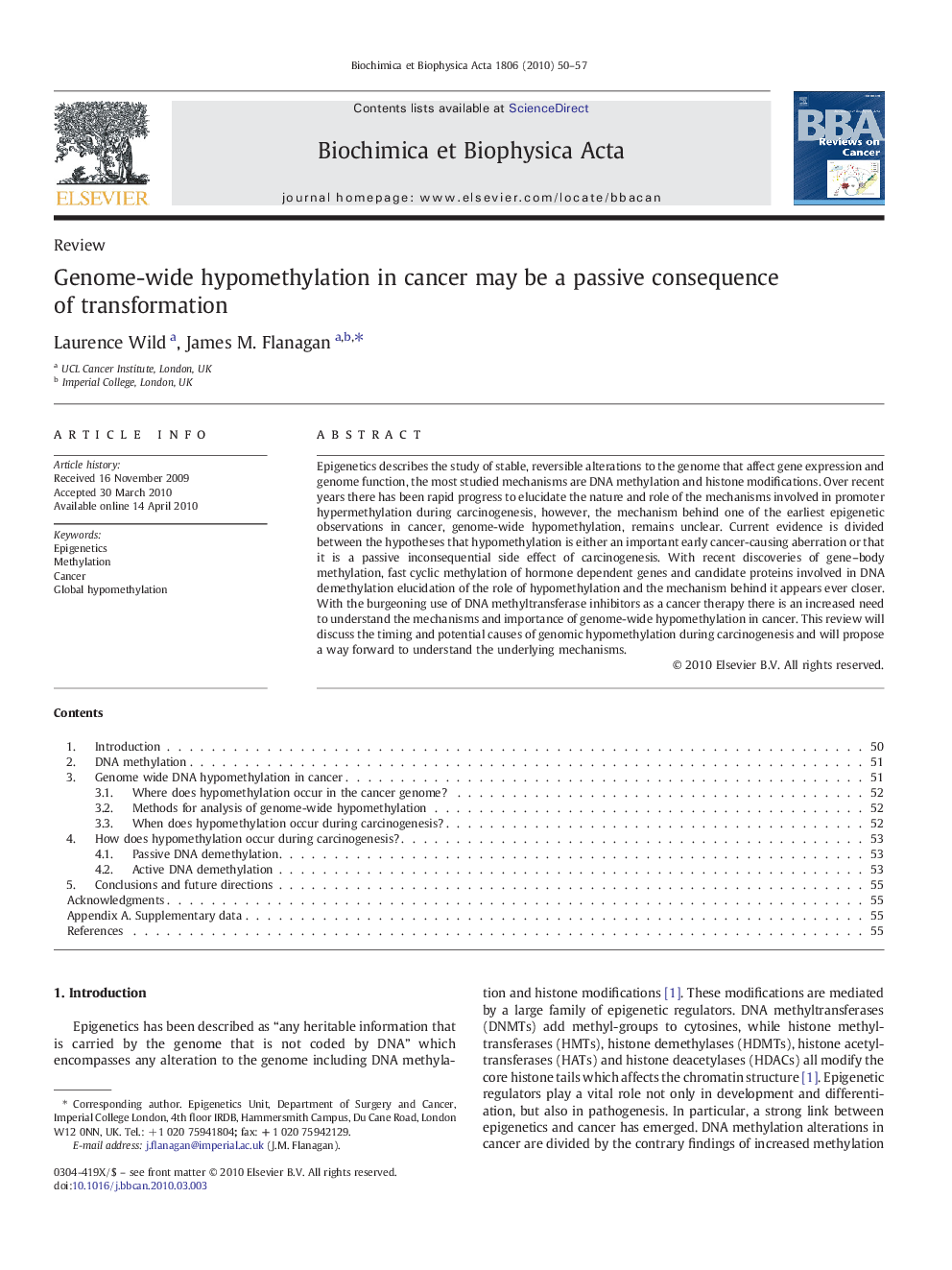| Article ID | Journal | Published Year | Pages | File Type |
|---|---|---|---|---|
| 2101062 | Biochimica et Biophysica Acta (BBA) - Reviews on Cancer | 2010 | 8 Pages |
Epigenetics describes the study of stable, reversible alterations to the genome that affect gene expression and genome function, the most studied mechanisms are DNA methylation and histone modifications. Over recent years there has been rapid progress to elucidate the nature and role of the mechanisms involved in promoter hypermethylation during carcinogenesis, however, the mechanism behind one of the earliest epigenetic observations in cancer, genome-wide hypomethylation, remains unclear. Current evidence is divided between the hypotheses that hypomethylation is either an important early cancer-causing aberration or that it is a passive inconsequential side effect of carcinogenesis. With recent discoveries of gene–body methylation, fast cyclic methylation of hormone dependent genes and candidate proteins involved in DNA demethylation elucidation of the role of hypomethylation and the mechanism behind it appears ever closer. With the burgeoning use of DNA methyltransferase inhibitors as a cancer therapy there is an increased need to understand the mechanisms and importance of genome-wide hypomethylation in cancer. This review will discuss the timing and potential causes of genomic hypomethylation during carcinogenesis and will propose a way forward to understand the underlying mechanisms.
